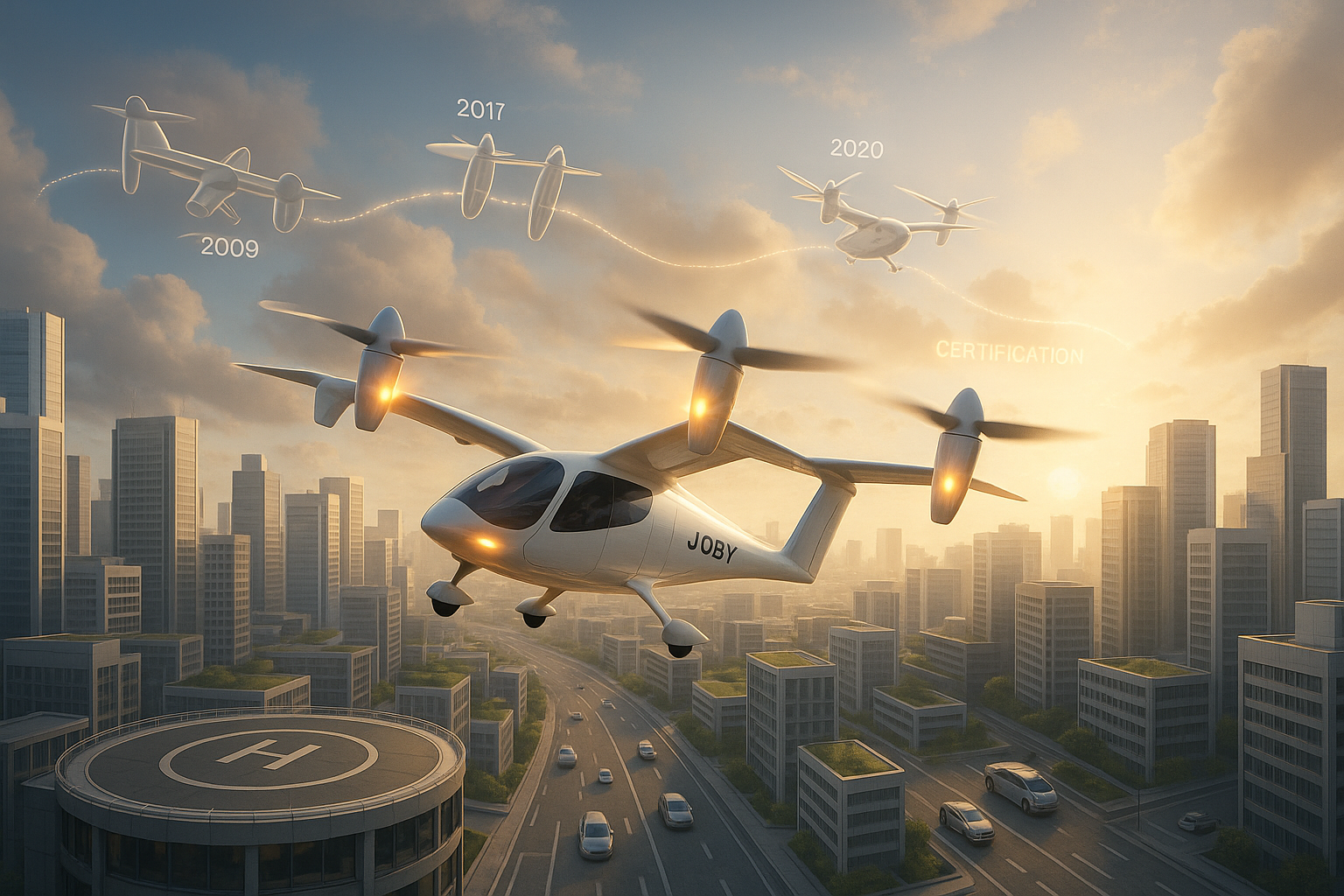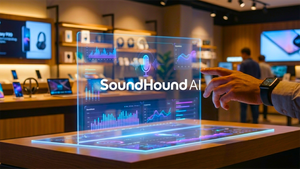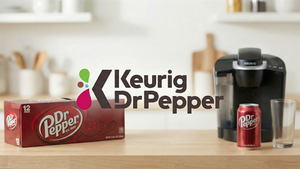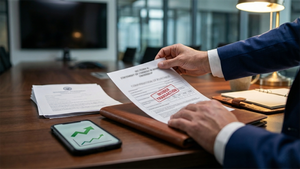
Joby Aviation (NYSE: JOBY) is a pioneering aerospace company based in California, dedicated to revolutionizing transportation through the development of electric vertical takeoff and landing (eVTOL) aircraft. Founded with the ambitious goal of providing on-demand air taxi services, Joby envisions a future where urban air mobility is a quiet, clean, and efficient reality. The company's core product is an all-electric aircraft designed to carry a pilot and four passengers, capable of speeds up to 200 mph and a range of 150 miles, offering a transformative alternative to traditional ground transportation by addressing congestion and reducing carbon emissions.
Joby's strategy is characterized by a vertically integrated approach, where it manages nearly every aspect of its aircraft and air taxi service in-house, from design and manufacturing to pilot training and operations. This comprehensive control ensures high standards of quality, reliability, and efficiency. The company plans to operate its own air taxi service with per-trip passenger pricing, aiming to make aerial ridesharing an everyday convenience.
Foundation and Early Years
Founding Story
Joby Aviation was founded as Joby Aero on September 11, 2009, by JoeBen Bevirt. The genesis of the company can be traced back to Bevirt's ranch in the Santa Cruz Mountains, where he nurtured various projects using funds from his prior successful ventures. For its initial decade, Joby operated in a "stealth mode," with a small team of seven engineers working out of "The Barn," a workshop nestled in the mountains. Their early efforts were dedicated to exploring fundamental components of electric aviation, including electric motors, flight software, and lithium-ion batteries. This foundational research laid the groundwork for collaborations with NASA on electric flight initiatives such as the X-57 Maxwell and LEAPTech, before Joby embarked on developing its proprietary air taxi concept.
Initial Business Model
From its inception, Joby Aviation's core business model has been to operate a piloted, on-demand air taxi service utilizing its eVTOL aircraft. Unlike many competitors, Joby adopted a "own and operate" strategy, aiming to build a vertically integrated transportation company. This means the company intends to provide transportation services with per-trip passenger pricing rather than selling its aircraft. This vertical integration extends to developing much of its technology in-house, including its powertrain and electronics manufacturing, ensuring a high degree of control and innovation.
Early Challenges and Solutions
The journey of developing advanced eVTOL technology presented numerous hurdles for Joby Aviation:
- Technological Development and Prototyping: The inherent complexity of eVTOL technology required extensive research and development.
- Solution: Joby systematically explored various components and configurations, starting with subscale prototypes by 2015, progressing to full-scale unmanned prototypes in 2017, and a pre-production prototype in 2019. Their initial S2 concept, featuring eight tilting propellers, evolved into the current configuration with six rotating propellers.
- Funding and Investment: Developing cutting-edge aviation technology demands substantial capital.
- Solution: Initially self-funded by JoeBen Bevirt, Joby gradually secured significant investments, including a $100 million Series B round led by Toyota AI Ventures in 2018. Toyota has since become a strategic investor, providing manufacturing expertise and additional capital.
- Regulatory Hurdles and Certification: Obtaining certification from aviation authorities like the FAA for a novel aircraft type is a protracted and intricate process.
- Solution: By 2019, Joby was actively engaging with the FAA regarding aircraft certification. In December 2020, it became the first eVTOL company to receive airworthiness approval from the U.S. Air Force through its Agility Prime program. The company also secured a 'G-1' certification basis for its aircraft with the FAA in February 2021 and has been steadily advancing through the FAA's certification stages.
- Manufacturing Scale-Up: Transitioning from prototypes to mass production is a monumental task.
- Solution: In January 2020, Joby announced plans for a manufacturing facility in Marina, California, followed by a larger 500,000 square foot factory. They are also investing in a manufacturing facility in Dayton, Ohio, with the capacity to produce up to 500 eVTOL aircraft annually. Toyota's partnership has been instrumental in providing expertise in factory layout, manufacturing process development, and high-volume production.
- Market Adoption and Infrastructure: The concept of urban air mobility is nascent, requiring public acceptance and the development of essential infrastructure like vertiports.
- Solution: A pivotal step was the acquisition of Uber Elevate in late 2020, which brought a $125 million investment and critical software infrastructure, including market simulation models and multi-modal operations platforms. Joby plans to leverage Uber's ridesharing network to facilitate the introduction of its eVTOL aircraft. Partnerships with airlines like Delta Air Lines and Virgin Atlantic also aim to integrate Joby's service into existing travel channels.
- Competition and Financial Risks: The eVTOL market is competitive, and significant capital is required for ongoing research, development, and scaling operations.
- Solution: Joby went public in August 2021 through a merger with a SPAC, Reinvent Technology Partners, which valued the company at approximately $4.5 billion and provided substantial cash for operations. They have also secured a $1.2 billion order from the U.S. Air Force, bolstering their financial position.
Growth and Development
Key Milestones
Joby Aviation's trajectory has been marked by a series of significant developmental and strategic achievements:
- Early Development and NASA Partnership (2009-2017): Founded in 2009, Joby Aero initially focused on electric aviation components. From 2012, it collaborated with NASA on projects like the X-57 Maxwell. By 2015, subscale eVTOL prototypes were operational, leading to full-scale unmanned prototypes in 2017.
- Funding and Pre-Production (2018-2019): In 2018, Joby secured a $100 million Series B funding round led by Toyota AI Ventures. A pre-production prototype began rigorous flight testing in 2019, and Joby initiated discussions with the FAA for aircraft certification. Toyota engineers also began collaborating with Joby on manufacturing.
- Strategic Acquisitions and Certifications (2020-2022): January 2020 saw plans for a manufacturing facility in Marina, California. Later that year, Joby acquired Uber Elevate, integrating its software and commercial launch expertise. In December 2020, Joby became the first eVTOL company to receive airworthiness certification from the U.S. Air Force. February 2021 brought a partnership with Garmin for flight deck equipment and a 'G-1' certification basis from the FAA. In 2021, Joby listed on the NYSE, raising significant capital. Its pre-production prototype flew over 5,300 miles, including a 154.6-mile flight on a single charge. In April 2022, Joby acquired hydrogen-aviation pioneer H2Fly. May 2022 marked the receipt of its Part 135 air service certification from the FAA, allowing commercial air taxi operations. Joby also partnered with NASA to confirm the low noise footprint of its aircraft and signed a multi-year partnership with Delta Air Lines.
- Production and Further Expansion (2023-Present): In June 2023, Joby rolled out its first production version of the aircraft and received FAA approval for flight testing. Plans for a scaled production site in Dayton, Ohio, capable of 500 aircraft per year, were announced. September 2023 saw the delivery of its first experimental eVTOL aircraft to the U.S. Air Force. By May 2025, Joby had flown over 40,000 miles across multiple aircraft, including successful piloted transition flights. In July 2025, the Marina, California manufacturing facility doubled its production capacity to 24 aircraft per year, and a sixth aircraft was added to its test fleet. The company is also ramping up operations at its renovated Dayton, Ohio facility.
Market Expansion
Joby Aviation's market expansion strategy encompasses both domestic and international markets, underpinned by strategic partnerships and regulatory advancements:
- United States: Joby is preparing to launch air taxi services in key U.S. cities, with Los Angeles and New York City identified as initial markets. Partnerships with Delta Air Lines and Uber are central to these plans, with commercial service expected to commence shortly after final FAA approval.
- International Markets:
- Dubai/UAE: Joby has secured exclusive six-year operating rights in Dubai and is constructing its inaugural vertiport at Dubai International Airport, targeting a 2026 launch, with initial commercial flights planned for late 2025 or early 2026.
- United Kingdom: A partnership with Virgin Atlantic aims to bring Joby's service to the UK.
- Japan: Joby has teamed up with ANA Holdings Inc., Japan's largest airline, to introduce its service in Japan.
- Global Regulatory Alignment: Joby is actively collaborating with the NAA Network (including the FAA, UK Civil Aviation Authority, and other regulators) to harmonize international standards by 2027, facilitating global deployment.
Product/Service Evolution
Joby's core product is an eVTOL aircraft designed for air taxi services, prioritizing safety, efficiency, and noise reduction.
- Aircraft Design and Capabilities: The aircraft is designed to carry up to four passengers and one pilot, featuring a fully electric propulsion system with a range of up to 150 miles and a top speed of 200 mph. A significant focus has been on noise reduction for urban operations.
- Service Model: Joby intends to operate its eVTOL aircraft as an air taxi service, providing "air-transportation-as-a-service." The acquisition of Uber Elevate brought the ElevateOS system, inspired by Uber's ride-hailing technology, to streamline the user experience. The service aims to offer a sustainable and efficient alternative to traditional ground transportation in congested urban environments.
- Manufacturing and Production: Joby is vertically integrated, managing nearly every aspect of its aircraft and air taxi service in-house. The Marina, California facility has doubled its production capacity to 24 aircraft annually. A new plant in Dayton, Ohio, backed by a $500 million investment from Toyota, aims to scale production to 500 units per year by 2027, leveraging Toyota's expertise in lean manufacturing.
- Future Prospects: Joby aims for commercial operations to begin in 2025. Beyond air taxi services, eVTOL technology has potential applications in the defense sector, and the company is exploring other uses for its platform, including hybrid hydrogen-electric propulsion testing.
Major Achievements
Industry Innovations
Joby Aviation has been at the forefront of eVTOL innovation:
- Pioneering eVTOL Aircraft: Joby has developed an all-electric eVTOL aircraft for commercial passenger service, capable of vertical takeoff and landing, cruising at 200 mph, and flying at least 150 miles on a single charge. This aircraft is designed to carry a pilot and four passengers, offering a clean, quiet, and fast on-demand air travel solution.
- Extensive Flight Testing: The company has conducted over 1,000 test flights, demonstrating its technological prowess. Its pre-production prototype has flown over 5,300 miles, including a 154.6-mile flight on a single charge. Joby has also successfully executed routine piloted full transition flights, seamlessly moving between vertical takeoff, 200 mph cruise flight, and vertical landing with a pilot onboard.
- Vertical Integration: Joby designs and manufactures its own critical components in-house, including motors, actuators, power electronics, and avionics systems. This approach allows for optimized system harmony, performance, safety, and efficiency. They also design and manufacture their advanced battery packs, which feature a modular architecture with 28 individual modules housed in titanium enclosures for safety.
- Advanced Aerodynamics and Acoustics: Joby utilizes advanced composite materials in its aircraft construction. The company has partnered with Flexcompute to integrate their Flow360 solver, which dramatically reduces design cycles and enables high-fidelity aerodynamic and aeroacoustic analyses, leading to quieter and more efficient aircraft. Their high-specific-torque motors operate at low RPMs during cruise, contributing to a remarkably quiet acoustic profile.
- Hydrogen-Hybrid Aircraft: Joby has expanded its flight test fleet to include a hydrogen-hybrid aircraft, which has flown 561 miles. The company is also developing an autonomous hybrid VTOL aircraft with L3Harris for defense applications, with flight tests planned for Fall 2025.
Awards and Recognition
Joby Aviation's innovative efforts have garnered significant recognition:
- Fast Company's World's Most Innovative Companies (2021): Joby Aviation was named to Fast Company's prestigious annual list of the World's Most Innovative Companies for 2021, acknowledging its leadership and first-mover advantages in the emerging aerial ridesharing industry.
- SunBridge-John Thomas Emerging Leader Award (2024): Joby Aviation is set to receive the 2024 SunBridge-John Thomas Emerging Leader Award – U.S. winner at the Japan–U.S. Innovation Symposium. This award recognizes innovative high-growth companies that are transforming major industries.
Market Leadership Positions
Joby Aviation has established a strong market leadership position through key certifications and strategic partnerships:
- FAA and Air Force Certifications: Joby became the first eVTOL company to receive airworthiness approval from the U.S. Air Force in December 2020. Shortly after, in 2020, Joby was the first to agree to a certification basis for an eVTOL aircraft with the FAA. The company has made significant progress in the FAA type certification process, completing three of the five stages and being 43% complete with Stage 4 (Testing & Analysis) requirements as of Q1 2025. They also secured FAA acceptance for their air operations voluntary Safety Management System under Part 5, years ahead of the mandated compliance deadline.
- Strategic Partnerships:
- Uber: In December 2020, Joby acquired Uber Elevate, Uber's aerial ridesharing division. This acquisition brought key personnel, consumer demand insights, and critical software infrastructure. Joby's services will be integrated into Uber's consumer apps.
- Toyota: Toyota is a strategic investor in Joby, committing to an additional $500 million investment, bringing their total expected investment to nearly $900 million. Toyota has also deployed dozens of engineers to work with Joby, lending expertise in factory layout, manufacturing process development, and high-volume production.
- U.S. Department of Defense (DoD): Joby has been working with the DoD since 2016. As part of a $131 million contract, Joby made its first delivery to the Air Force, with the aircraft stationed at Edwards Air Force Base for logistics missions. They delivered a second aircraft to Edwards Air Force Base in Q4 2024.
- Delta Air Lines: Joby is working with Delta Air Lines to build point-to-point networks for air taxis in major cities.
- Commercialization Readiness: Joby plans to launch initial passenger services in late 2025 or early 2026. They plan to deliver an aircraft to Dubai by mid-2025 for testing, supporting their target of launching commercial flights in Dubai in late 2025 or early 2026. Joby holds exclusive six-year operating rights in Dubai and is constructing its first vertiport at Dubai International Airport.
- Manufacturing Expansion: Joby is expanding its manufacturing capabilities, with a 435,500-square-foot facility in Marina, California, currently producing 24 eVTOL aircraft annually. A new plant in Dayton, Ohio, backed by Toyota's investment, aims to scale production to 500 units per year by 2027.
- Pilot Training: The FAA granted Joby Aviation a Part 141 certificate for its Flight Academy, enabling Joby to streamline pilot training for commercial air taxi services.
- Financial Strength: As of Q1 2025, Joby maintained $813 million in cash and short-term investments, with an additional $500 million commitment from Toyota, totaling approximately $1.3 billion in liquidity. In October 2024, Joby also raised approximately $222 million through a follow-on equity offering.
Corporate Culture and Leadership
Notable Leaders and Their Contributions
Joby Aviation's leadership team comprises experts dedicated to innovation, safety, and sustainability:
- JoeBen Bevirt (Founder and CEO): Founded Joby Aviation in 2009 with a vision to reimagine air transportation. He has been instrumental in pioneering the eVTOL space and holds over 160 U.S. patents in aerodynamics, aircraft design, and electric propulsion.
- Paul Sciarra (Executive Chairman): As Joby Aviation's Executive Chairman and first outside investor, Paul Sciarra has been crucial in shaping the company's strategy, particularly its shift to a four-seat aircraft operating within a service-based model.
- Bonny Simi (President of Operations): Brings extensive aviation and operational experience from JetBlue, where she founded JetBlue Technology Ventures. A seasoned pilot, Simi leads the development of Joby's operating service, including flight operations, maintenance, training, safety, and air carrier certification. She also oversees the People function and started Joby Academy to provide free private-pilot ground school.
- Didier Papadopoulos (President of Aircraft OEM): Joined Joby in 2021 from Garmin International, bringing over two decades of aviation experience. He is responsible for the full lifecycle engineering at Joby, from design to manufacturing and testing, a key aspect of Joby's vertical integration.
- Eric Allison (Chief Product Officer): Previously led the Uber Elevate team, which Joby Aviation acquired. His background in aerospace research, electric propulsion, energy storage, vehicle autonomy, and composite structures contributes to Joby's product development and focus on autonomous flight.
- Kate DeHoff (Chief Legal Officer and Corporate Secretary): Joined Joby from Uber Elevate and has experience in the aerospace industry as General Counsel for ICON Aircraft. She is responsible for the company's legal, ethics, and compliance functions.
- Greg Bowles (Chief Policy Officer): Brings nearly two decades of aviation regulation and policy experience to Joby, having championed modern regulatory reforms at the General Aviation Manufacturers Association (GAMA). He plays a crucial role in navigating the regulatory landscape for eVTOL aircraft.
Company Values and Mission
Joby Aviation's mission is to "transform the future of transportation" by providing safe, reliable, and sustainable urban air mobility solutions. Key values include:
- Innovation: Emphasizing continuous advancements in aircraft design, battery technology, and autonomous flight systems.
- Sustainability: A deep commitment to reducing carbon emissions and promoting eco-friendly air travel with their all-electric eVTOL aircraft.
- Accessibility and Affordability: Aiming to make air travel more accessible and efficient, with a fare structure competitive with traditional ground transportation.
- Safety: Safety is a core value and the "north star" for Joby Aviation, integrated into every aspect of their business. They maintain a comprehensive safety policy and an open, "Just Culture" that encourages reporting unsafe conditions.
- Customer-Centricity: Aiming to transform daily travel by offering a faster, cleaner, and more convenient way to move.
Organizational Philosophy
Joby Aviation operates with a vertically integrated organizational philosophy, bringing together aircraft design, manufacturing, and operations under one roof. This approach allows them to instill high standards for quality, safety, sustainability, and social impact across all aspects of their business. They believe this vertical integration is a "superpower," enabling rapid and efficient demonstration of new technologies and bringing them to market. The company fosters a positive and challenging work culture, described by employees as a "one team" approach to solving difficult problems, and focuses on talent and workforce development.
Current Status
Market Position
Joby Aviation is a recognized market leader in the nascent eVTOL sector, backed by significant contracts and partnerships. As of August 1, 2025, the company boasts a market capitalization of $14.44 billion, reflecting substantial growth. While not yet generating significant revenue, Joby maintains a robust financial position with $933 million in cash and short-term investments, plus an additional $500 million commitment from Toyota, as of Q4 2024. The company faces competition from rivals such as Archer Aviation, Lilium, Volocopter, Vertical Aerospace, EHang, and BETA Technologies, but its strategic partnerships with Toyota, Delta Air Lines, and the U.S. Air Force bolster its credibility and financial backing.
Recent Developments
Joby is making substantial progress on its Federal Aviation Administration (FAA) Type Certification, having completed three of the five stages and being over 50% complete on its side of the fourth stage as of Q4 2024. Manufacturing efforts are scaling up, with the company reaching its target of building parts equivalent to one aircraft per month and planning to deliver the first parts from its Ohio facility in mid-2025.
Internationally, Joby broke ground on its first "vertiport" at Dubai International Airport in November 2024, targeting initial flights in Dubai for the first half of 2025 and full commercialization in the latter half. The agreement with Dubai's Road and Transport Authority (RTA) includes six years of exclusive market access in Dubai by 2026. Joby has also conducted successful demonstration flights in Korea and announced partnerships with Virgin Atlantic for the UK market and ANA Holdings Inc. for Japan.
In defense, Joby continues to strengthen its partnerships, having delivered two electric air taxis to its DoD partners. It is the only company in its sector to have demonstrated a hybrid aircraft, completing multiple 500+ mile flights with a hydrogen-electric aircraft as part of government contracts. Joby is collaborating with L3Harris Technologies to develop a new class of hybrid gas turbine VTOL aircraft for defense applications, with flight testing expected to begin in Fall 2025. Furthermore, Joby acquired Xwing's autonomy division in June 2024, enhancing its capabilities in optionally piloted systems and aircraft-level autonomy.
Future Outlook
Joby plans to commence commercial passenger operations in late 2025 or early 2026, with Dubai as the initial launch market, followed by high-density U.S. cities like New York City and Los Angeles. The eVTOL market is projected for substantial growth, with a potential market size of $1 trillion by 2040. Analysts anticipate significant revenue growth for Joby, though earlier projections have been adjusted, highlighting the speculative nature of the industry. While analyst stock forecasts for 2025 vary, some are more bullish for 2030. Joby faces ongoing funding needs, regulatory uncertainties, and manufacturing hurdles. However, its long-term potential is promising if it can establish consistent revenue and scale operations, with profitability potentially by 2027-2028.
Summary
Joby Aviation has emerged as a leading force in the burgeoning urban air mobility sector, driven by its pioneering development of electric vertical takeoff and landing (eVTOL) aircraft. From its stealthy beginnings on JoeBen Bevirt's ranch, the company has meticulously built a vertically integrated operation, encompassing everything from advanced aircraft design and in-house component manufacturing to pilot training and future air taxi services. Through strategic partnerships with industry giants like Toyota, Uber, and Delta Air Lines, coupled with significant defense contracts and a relentless pursuit of FAA certification, Joby has solidified its position as a frontrunner in bringing quiet, clean, and efficient air travel to urban environments.
The company's journey is a testament to its commitment to innovation, safety, and sustainability, reflected in its extensive flight testing, advanced technological integrations, and a corporate culture that prioritizes a "one team" approach to complex problem-solving. As Joby Aviation moves closer to its commercial launch in key global markets like Dubai and major U.S. cities, it stands poised to transform daily transportation, offering a faster, more environmentally friendly alternative to ground travel. While challenges remain in scaling production and navigating regulatory landscapes, Joby's robust financial standing, strategic alliances, and unwavering vision position it as a pivotal player in shaping the future of aerial mobility.




